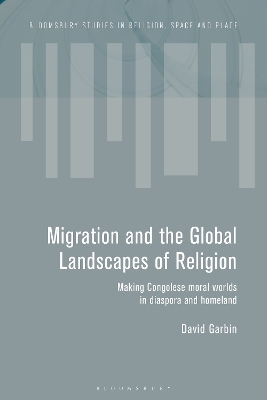Bloomsbury Studies in Religion, Space and Place
1 total work
This book uses case studies of the Congolese Christian diaspora in the UK and US to explore the making of religious spaces and transnational networks in an era of globalisation. Religion is a key aspect of the community, social and political life of Congolese migrants. Despite their academic and policy relevance in terms of displacement and diaspora formation processes, Congolese migrant communities have been scantily researched.
Religion, Migration and Globalization analyses the social meaning of this religious presence and territorialisation in a context of economic and socio-spatial marginalisation for Congolese migrants. These migrants who had (and for some, still have) to address the predicaments of displacement, relocation and the status of being 'a minority within a minority', as Francophone black African migrants in English-speaking countries.
Drawing on extensive ethnographic data, David Garbin captures the nuances of a complex and changing social and religious landscape in an era of globalisation and migration.
Religion, Migration and Globalization analyses the social meaning of this religious presence and territorialisation in a context of economic and socio-spatial marginalisation for Congolese migrants. These migrants who had (and for some, still have) to address the predicaments of displacement, relocation and the status of being 'a minority within a minority', as Francophone black African migrants in English-speaking countries.
Drawing on extensive ethnographic data, David Garbin captures the nuances of a complex and changing social and religious landscape in an era of globalisation and migration.
